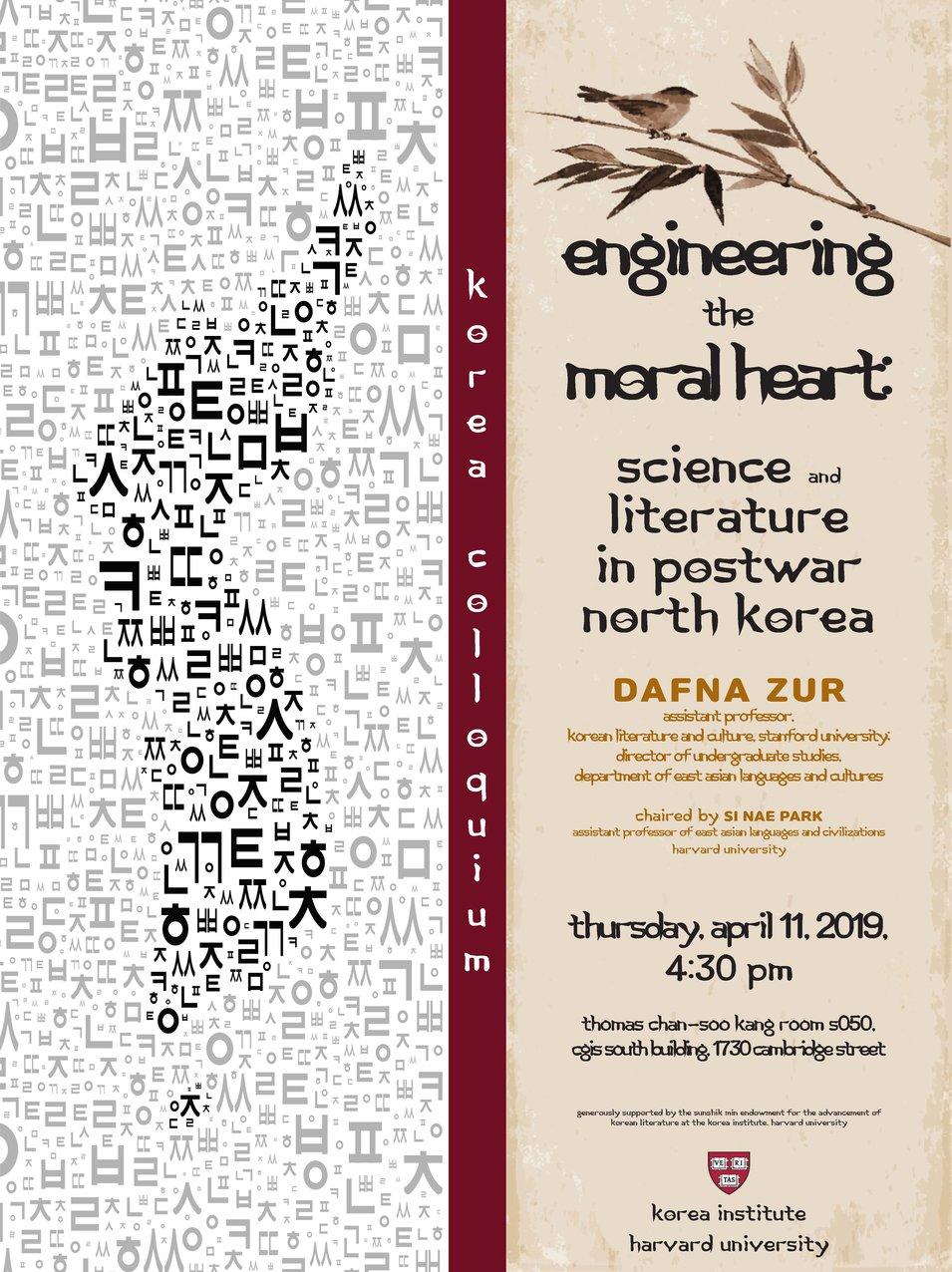Date:
Location:
Korea Colloquium
Dafna Zur
Assistant Professor, Korean Literature and Culture, Stanford University; Director of Undergraduate Studies, Department of East Asian Languages and Cultures
Dafna Zur teaches courses on Korean literature, popular culture, cinema, and popular culture. Her book, Figuring Korean Futures: Children’s Literature in Modern Korea (Stanford University Press, October 2017), traces the affective investments and coded aspirations made possible by children’s literature in colonial and postcolonial Korea. She has published articles on North Korean science fiction, the Korean War in North and South Korean children’s literature, childhood in cinema, and Korean popular culture. Her translations have been published in wordwithoutborders.org, The Columbia Anthology of Modern Korean Short Stories, and the Asia Literary Review.
Dafna Zur received her PhD and MA in Asian Studies from the University of British Columbia, and a BA from Hebrew University of Jerusalem.
Chaired by Si Nae Park, Assistant Professor of East Asian Languages and Civilizations, Harvard University
Abstract:
Children’s literature emerged in early twentieth century Korea, and was predicated on the belief in the emotional and intellectual difference between children and adults. Dr. Zur’s interrogation of the political and social stakes in writing for children reveals that it was the bond between the child and nature that underwrote much of the fiction and poetry for children in its first four decades. This bond was broken when the atomic era, and the rules of the Cold War, rewrote humans’ relationship with nature, and when the cult of science placed children as the agents of the transformation of nature. Based on recent research into popular science in postwar North Korea, Dr. Zur shows the ways in which science had to contend with narrative in what was ultimately an overdetermined investment in moral reformation of its young.
Generously supported by the Sunshik Min Endowment for the Advancement of Korean Literature at the Korea Institute, Harvard University.